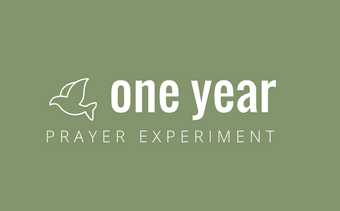Gunman kills students at school.
Children gassed in Syria.
I heard from the doctor today . . .
Life hurts.
 Sometimes the hurt is just ‘bad.’ We can still cope with the trouble. Our minds can create solutions to the problems. Solutions which we then ask God to carry out. Or sometimes demand that he does.
Sometimes the hurt is just ‘bad.’ We can still cope with the trouble. Our minds can create solutions to the problems. Solutions which we then ask God to carry out. Or sometimes demand that he does.
But there are other times when the hurt moves beyond bad. Those times when we watch the news about Syria, or the Florida School Shooting. Or times when we watch our own lives collapsing around us. There are just no words. There are no answers that we can come up with. Events occur that we simply cannot understand, or sometimes even deal with. These are life’s moments that bring us to the end of our rope, and we just do not know what to do.
It is in those moments that we must lament.
What is Biblical Lament?
Many of us are likely familiar with different types of prayer and their appropriate occasions. When in need, a believer makes requests to God. Upon seeing God provide, a believer will offer thanksgiving. Recognizing how amazing God is when studying his attributes, praise should be forthcoming. But, how are we to pray when life presents to us incredible pain and hurt, and no seeming way out?
This is the place for lament. Author Michael D. Guinan defines lament as “a prayer for help coming out of pain.”
Lament is prayer, but not as most of us are used to. It is a direct address to God, but it is a direct address to God driven by  emotion. The intellect drives much of our prayer. We understand God’s attributes, so we praise him. We recognize a need and its solution, then we make a request. But pain and loss generate powerful emotions. Lament is a form of prayer driven by these powerful feelings. We go before God, and we tell him how we feel. We tell him how much we hurt, we confess our uncertainty. Then we remind ourselves how great he is. Lament is prayer that is brutally honest.
emotion. The intellect drives much of our prayer. We understand God’s attributes, so we praise him. We recognize a need and its solution, then we make a request. But pain and loss generate powerful emotions. Lament is a form of prayer driven by these powerful feelings. We go before God, and we tell him how we feel. We tell him how much we hurt, we confess our uncertainty. Then we remind ourselves how great he is. Lament is prayer that is brutally honest.
We Need Lament
Lament has fallen by the wayside in our churches today. For many reasons, our generation no longer remembers how to lament, and it is to our great detriment that this form of prayer has been lost. Proper lament is healthy and vital to the growth of God’s people.
Lament Allows us to be Fully Human
We need lament because it allows us to be fully human in our walk with God. People are not just an intellect. We are an amazing blend of mind, emotion and will. All of these are not always valued by believers, however.
 Years ago, a large and influential ministry popularized an illustration using a train. Fact, the truth of the Gospel, was the engine. It provided the power to move the train forward. Faith was the coal tender car. It provided the engine with the fuel that it needed to propel everything forward. Feelings were the caboose, a car that was not necessary to movement, and was to be pulled along by the other two.
Years ago, a large and influential ministry popularized an illustration using a train. Fact, the truth of the Gospel, was the engine. It provided the power to move the train forward. Faith was the coal tender car. It provided the engine with the fuel that it needed to propel everything forward. Feelings were the caboose, a car that was not necessary to movement, and was to be pulled along by the other two.
I believe this illustration properly teaches the primacy of truth. The truth of the Gospel and our faith in those truths should be central to our beliefs. And to our lives. Truth and faith should govern our emotions. But, like many teachings, they can be taken too far. Often times it is implied that as the caboose, emotions are not necessary at all. Emotions become dismissed entirely.
This dismissal of our emotions ruins our relationship with God. A relationship consists of knowing and being known. If God only knows, and cares about, our will and our mind – he only knows and loves a part of us. This is a relationship that will bring joy to no one.
Lament allows us to bring our full emotions to bear. When they are at their greatest, the waves of hurt and fear and uncertainty can be brought out into the open and shared with our heavenly Father. We find a caring ear. And a glimmer of hope for help.
With out lament, we are never fully known.
Lament Allows us to Process Powerful Emotions Properly
The ups and downs of life produce many powerful emotions. Prayers of Lament provide a process for believers to process these emotions in a way that allow us to express the emotions but then bring those feelings back in line with the character and  work of God.
work of God.
Proper lament, as we shall see later, is a cycle. It is a process that begins with the expression of deep pain and hurt. Feelings are brought out into the open, instead of being bottled up or medicated with our favorite sin. The sin, trouble or tragedy is named, often in great detail. The situation and the pain are openly acknowledged. There is no pretense of a stiff upper lip or of some super-Christian “everything is ok.”
Next, crucially, we remember what God is like. We remember God’s power, that he is all-knowing, and that he is love. We remember how he has come through for his people in the past. It is recognized that as bad as it is to our eyes, this situation is not beyond God’s ability to work – and we acknowledge this to him.
Lastly, in recognition that the only possible source of rescue from this situation is God, we beg him to help. After we tell God how bad it is, we ask him to fix it. Sometimes we have suggestions for how God should intervene, but often the situation is so dire we have no request to make other than, “Help!”
It is these last two steps that make lament so healthy for Christians. In lament we have a space in which to express our pain. It is widely accepted that emotions need to be “let out.” Lament allows the expression of such pain. But these last two steps prevent the emotion from taking over, it prevents the caboose from going to the front of the train. The feelings are acknowledged, but they are immediately put in the light of God’s character. The circumstances – or the hurt – will not overcome us, says the truth of God’s word. In addition, we seek help from the only one who can help. Knowing God has promised to rescue his people in his time, hope and confidence emerge in the midst of the pain. Through lament the caboose is acknowledged, but we also ensure it stays in the back of the train, guided by truth and trust.
In proper lament, we find expression and hope – by expressing it to the one who can do something about it.
Lament is not fun. But it is good for us. We need it.
Lament as an Expression of Faith
Tragedy and difficult times typically lead to feelings of despair or doubt. Followers of Christ of fear both of these responses. It is helpful for us however to recognize they are different – and one need not be feared.
Tragedy and suffering lead many into feelings of despair. For the purposes of our discussion, we define despair as feelings of utter helplessness and hopelessness. The one who has entered despair feels like all hope is lost. Nothing can be done by anyone to remedy the situation. “I can’t do anything to change things” they will say. Or, “God cannot – or will not – do anything.” People who have given in to despair have given up on God. They do not believe he cares. So, they run away from God when life hits the fan.

Doubt on the other hand is a totally different experience. For our discussion, we define doubt as feelings of being unsure. The one struggling with doubt deep down still believes God cares, and that he can do something to rescue them. They would say, “I don’t know how, but I know God could . . .”
Since they still believe that God cares and is still powerful enough to act, they take their feelings – and their last desperate cries for deliverance – to God. The one who is willing to lament then, is the one who still believes God cares and is active. They would not appeal to a God they believe to be uninvolved.
Elements of Lament
Lament is not uncommon in the pages of the Bible. The Old Testament Book of Lamentations is one long lament over the situation of Israel. Over one-third of the Psalms are laments. Jesus himself, in the Garden of Gethsemane, prayed a prayer of lament.
While each of these prayers are not identical in form, they do have many common elements. Elements that we should understand if we are going to pray our own prayers of lament.
Addressed directly to God
Prayer is personal communication. Prayers of Lament are no different. Open by directly addressing our Heavenly Father.
The Psalmists give us great examples. “Out of the depths I cry to you, O Lord!” begins Psalm 130:1. Elsewhere, Psalm 88:1 opens with, “O Lord, God of my salvation; I cry out day and night before you.”
Ask Heartfelt Questions

Bring before the Lord our questions about what is going on around us. These questions are not so much appeals for information as they are expressions of hurt.
The writers of the Psalms guide us again. Psalm 13:1-2 opens with some gut wrenching, honest questioning: “How long, O Lord? Will you forget me forever? How long will you hide for face from me? How long must I take counsel in my soul and have sorrow in my heart all the day? How long shall my enemy be exalted over me?”
Complaining vs Expressing
Some of us will see this call to honesty and see it as nothing more than license to complain, to whine. This form of prayer then becomes summarily dismissed. But I was really helped in this by the example of Job.
Job was a Godly – and blessed – man who was afflicted by the devil. He lost his wealth, his family, everything. Broken in spirit his words to God were eye-opening. He was so brutally honest, but as we are told, he never crossed the line into sin.
In trying to understand how that could be, it occurred to me that there is a difference between shaking the fist at God and pointing the finger at him.

Shaking the fist at God is the reaction of someone who does not understand what is going on. They do not know why God has not acted yet, they are frustrated, hurt and angry. They seek help. Desperately, they shake their fist at God. “I don’t like this!” “Why don’t you help us yet!” Those who shake the fist at God are not afraid to admit their hurt or fear, but they never question God’s character or love.
Pointing the finger at God is different. To point the finger at God is to accuse him of wrong doing. God, you didn’t come  through for me!” “God, if you let this happen there is no way you love us.” “God, you were wrong in this!” See the difference?
through for me!” “God, if you let this happen there is no way you love us.” “God, you were wrong in this!” See the difference?
Job was able to shake his fist at God with out ever pointing his finger at him. We are to do the same in our lament. Be honest, but don’t turn it into license to accuse the Almighty.
Describe the Afflictions
Tell God about the dire circumstances surrounding you. If our troubles are coming from other people, tell God who is oppressing us and how they are doing it. If our pains are from our own decisions, tell God about the ways we have faltered and how those choices are causing pain to enter our lives.
God is omniscient. He knows everything. But he still wants to hear it from us – and we need to tell him. Whether it be sickness, relational issues, injustice, war, oppression, or our own sin, tell God about it. Let him know what the circumstances are doing to you and how it makes you feel.
The author of Psalm 3 looks about him and is bothered by the oppression of the poor he witnesses:
“In arrogance the wicked hotly pursue the poor; let them be caught in the schemes that they have devised. For the wicked boasts of the desires of his soul. And the one greedy for gain curses and renounces the Lord. In the pride of his face the wicked does not seek him; all his thoughts are, ‘There is no God.’ His ways prosper at all times; your judgments are on high, out of his sight; as for all his foes, he puffs at them. He says in his heart, ‘I shall not be moved; throughout all generations I shall not meet adversity.’” (Psalm 10:2-6, ESV)
The Psalmist sees the oppression of the poor. It bothers him. It bothers him to the point of lament.
Pray for deliverance
After sharing with God about the injustice and the suffering happening right before us, ask God to intervene. Ask God to deliver.

Ask God to heal the sick, free the oppressed, punish the unjust, stop the tyrant, teach the ignorant . . . in what ever form it looks like, beg God to rescue.
As one Psalmist says, “Rescue me, O my God, from the hand of the wicked, from the grasp of the unjust and cruel man.” (Psalm 71:4, ESV)
Express Confidence and Trust in God
After expressing our hurts, and after seeking help from the all-powerful God, we have reason for peace. We have reason for praise – because “God’s got this!”
Praise God for his attributes, his traits that fill you with hope and confidence as you lean on him. Remember the ways God has come through for his children in the past and praise him for those acts of deliverance.
Let our hopes and requests turn us to praise. Just like they did for the author of Psalm 10: “O Lord, you hear the desire of the afflicted; you will strengthen their heart; you will incline your ear to do justice to the fatherless and the oppressed, so that man who is of the earth may strike terror no more.” (vv.17-18, ESV)
Try it – Pray a Prayer of Lament

Unlike some of our other forms of prayer we have experimented with, lament is very situational. It is response to a certain event or state. Given this nature, it does not really seem appropriate to do as I have in the past. To attempt to just lament for a week is not a good idea.
To attempt to lament every day would be forcing it. Inauthentic lament is not life-giving, nor God honoring.
Recent events however, do give reasons to express lament. The current and ongoing situation in Syria bothers me in my heart. While the news reports speculate endlessly on who did what and which side was responsible for each attack, the reality is that there is human suffering occurring on a scale far beyond most American’s conception. This is cause for lament.
No explanation is needed as to why recent events in Florida are cause for lament. Every school shooting provides cause for lament.
So this week, as part of my ordinary prayer times, I will include a few times of lament. I will express to God my deep pain over these events that I have no control over. I will pray in a way that includes all of the elements described above.
To help you do the same, we have put together a short one-page PDF you can download from our Prayer Toolbox page to guide you in praying a prayer of lament.
We will give it a try and let you know how it goes.



Recent Comments